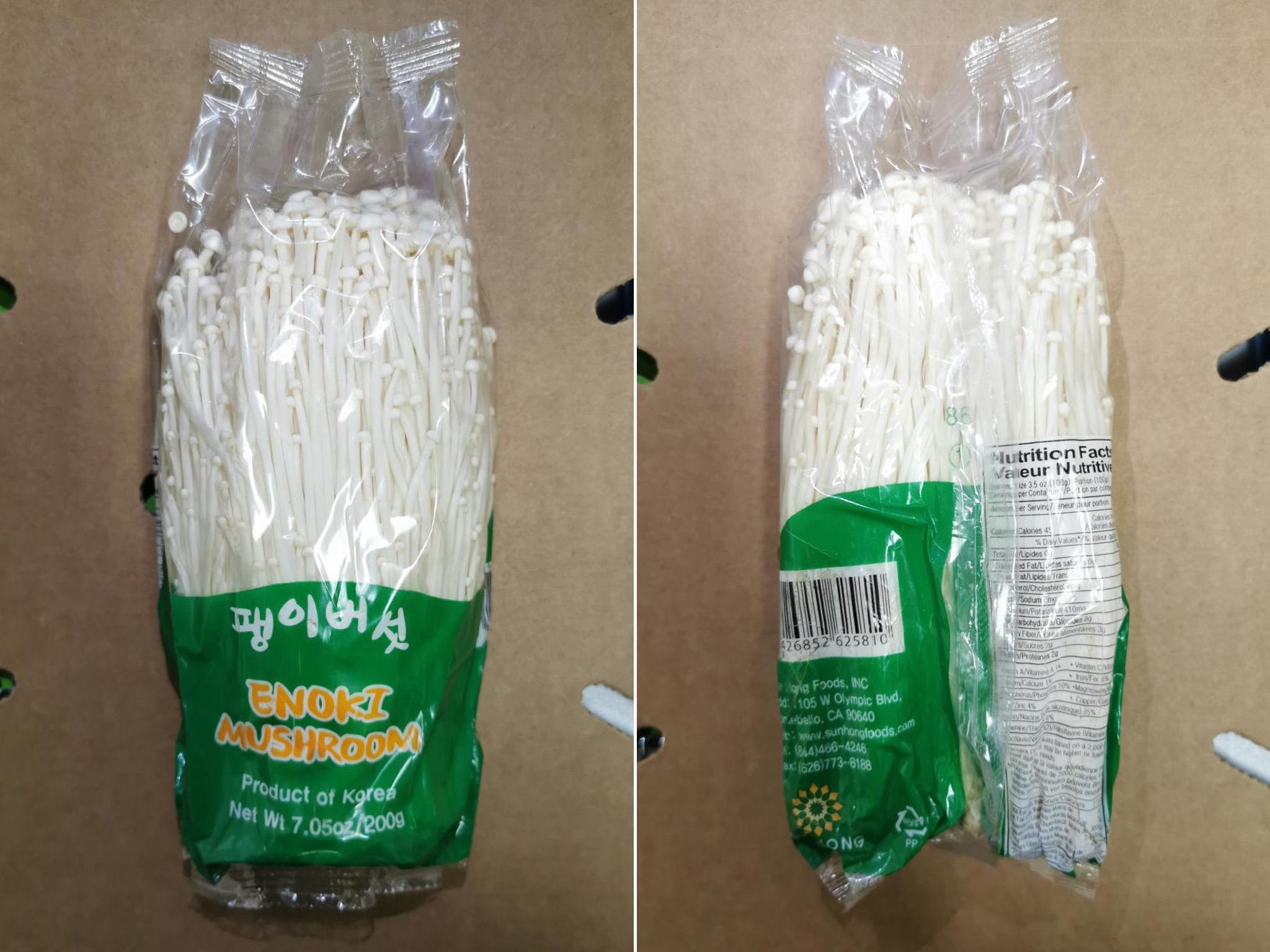Listeria outbreak: Four dead and two miscarriages in potential infection from recalled enoki mushrooms
US CDC says mushrooms were labelled as coming from Korea

Your support helps us to tell the story
From reproductive rights to climate change to Big Tech, The Independent is on the ground when the story is developing. Whether it's investigating the financials of Elon Musk's pro-Trump PAC or producing our latest documentary, 'The A Word', which shines a light on the American women fighting for reproductive rights, we know how important it is to parse out the facts from the messaging.
At such a critical moment in US history, we need reporters on the ground. Your donation allows us to keep sending journalists to speak to both sides of the story.
The Independent is trusted by Americans across the entire political spectrum. And unlike many other quality news outlets, we choose not to lock Americans out of our reporting and analysis with paywalls. We believe quality journalism should be available to everyone, paid for by those who can afford it.
Your support makes all the difference.Four people have died and another 30 have been hospitalised with listeria, after eating what officials suspect were recalled enoki mushrooms from the company Sung Hong Foods.
The mushrooms were recalled on Monday with the Food and Drug Administration's website claiming they may be contaminated with listeria, a deadly bacteria.
The deaths were reported in California, Hawaii and New Jersey, according to the US Centres for Disease Control and Prevention, which has received a total of 36 reports of infected people in 17 states.
Six of those cases involved pregnant women, and there have been two reported miscarriages among them, the CDC has said.
"Do not eat, serve, or sell any recalled enoki mushrooms distributed by Sung Hong Foods, Inc," the CDC said on its website.
The enoki mushrooms in question are labelled as products of Korea, and are long and white with small caps, according to the CDC.
They were sold in clear plastic packages with green labels, in 7.05-ounce/200-gram portions.
The source of contamination is being investigated, and it is not clear whether other products might be linked to the illness.
Listeria symptoms generally start one to four weeks after eating contaminating food, and the infections can be treated with antibiotics.
Those symptoms are different for different people. Most people experience headaches, stiff necks, confusion, loss of balance, muscle aches, fever and convulsions.
Pregnant women are at a danger of miscarriage, stillbirth, life threatening infection for the newborn and premature delivery.
Subscribe to Independent Premium to bookmark this article
Want to bookmark your favourite articles and stories to read or reference later? Start your Independent Premium subscription today.
Join our commenting forum
Join thought-provoking conversations, follow other Independent readers and see their replies
Comments